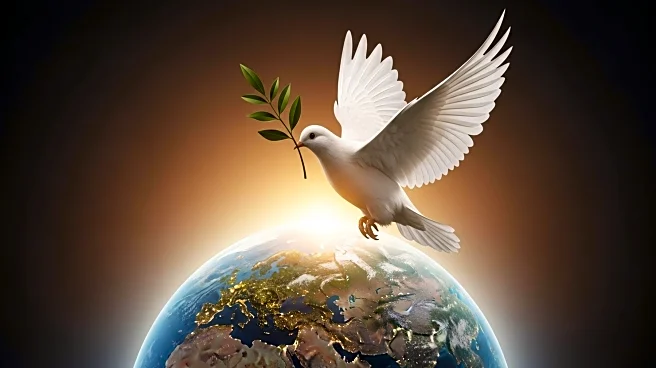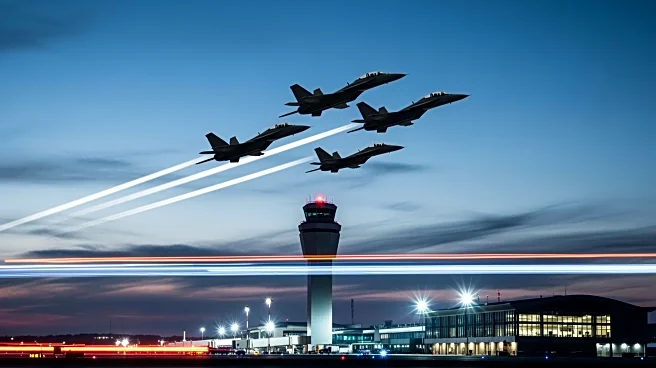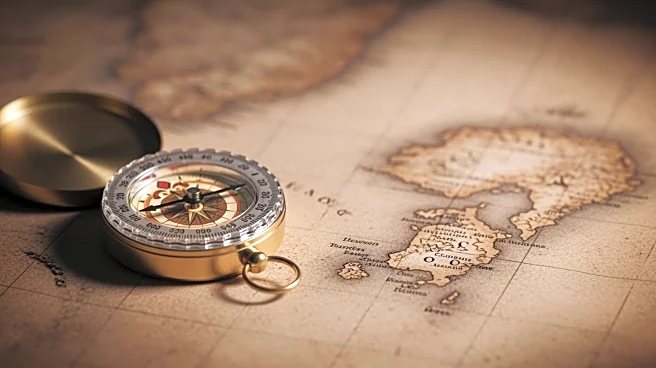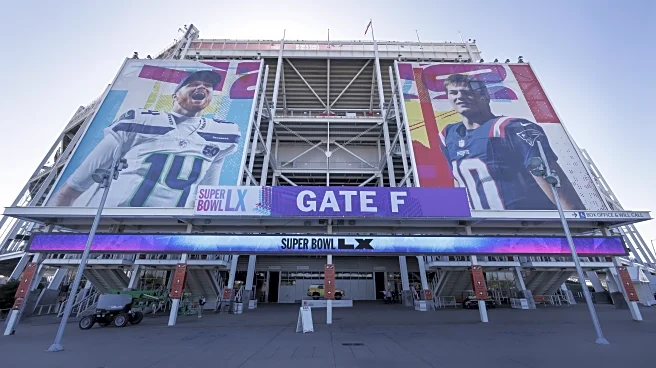What is the story about?
What's Happening?
The Nobel Peace Prize is set to be awarded in Oslo, with ten contenders vying for the prestigious honor. Among the candidates are humanitarian organizations, political figures, and civil society leaders who have made significant contributions to peace and human rights. Notable contenders include the Emergency Response Rooms (ERRs) in Sudan, which provide essential services amidst ongoing conflict, and Ukrainian President Volodymyr Zelensky, recognized for his resistance against Russian aggression. Other candidates include Reporters Without Borders, advocating for press freedom, and Mahrang Baloch, a Pakistani human rights activist. The International Criminal Court (ICC) is also in the running, despite facing sanctions from Washington. These nominees reflect diverse efforts to promote peace and address humanitarian crises worldwide.
Why It's Important?
The Nobel Peace Prize serves as a global recognition of efforts to foster peace and address humanitarian issues. This year's contenders highlight the ongoing struggles in regions like Sudan and Ukraine, where conflict and political tensions persist. Awarding the prize to these candidates would underscore the importance of humanitarian work and the defense of human rights in challenging environments. It also brings attention to the role of media and civil society in promoting transparency and accountability. The recognition of these efforts can inspire further support and action from international communities, potentially influencing policy decisions and encouraging collaborative peace initiatives.
What's Next?
The announcement of the Nobel Peace Prize winner could have significant implications for the nominees and their causes. For instance, recognition of the ERRs could lead to increased international support and resources for their humanitarian efforts in Sudan. Similarly, awarding the prize to President Zelensky might bolster international backing for Ukraine amidst ongoing conflict with Russia. The ICC's potential recognition could impact its standing and influence in international law, despite current sanctions. The prize could also elevate the profiles of individual activists like Mahrang Baloch, potentially leading to increased advocacy and pressure for human rights reforms in their respective regions.
Beyond the Headlines
The Nobel Peace Prize not only acknowledges individual and organizational achievements but also highlights broader geopolitical dynamics. The inclusion of candidates from diverse backgrounds reflects the committee's effort to recognize contributions from the Global South, addressing critiques of Western bias. This approach emphasizes the interconnectedness of global peace efforts and the need for inclusive recognition. Additionally, the prize serves as a platform to raise awareness about under-reported conflicts and humanitarian crises, encouraging international dialogue and cooperation.

















